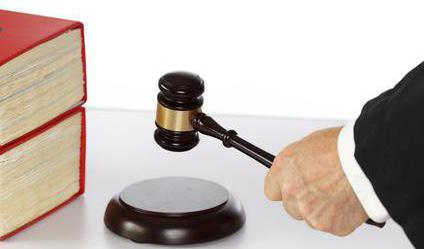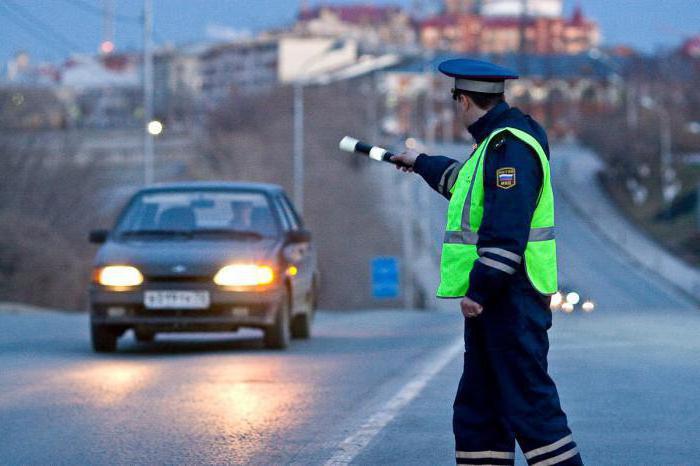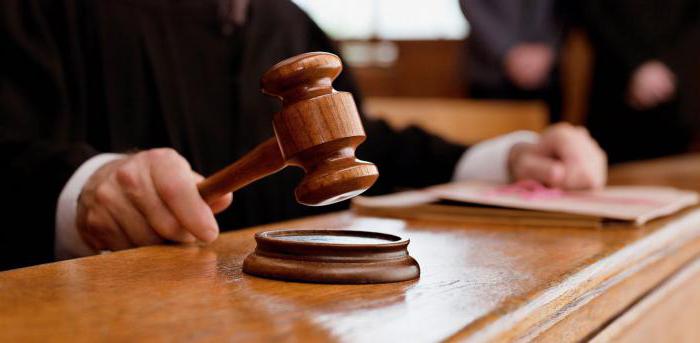Well-known Russian human rights activists and lawyers claim that more than 80% of Russians are unfamiliar with their constitutional rights or only partially know them. In our country, people are accustomed to obeying the existing law unquestioningly, and few citizens decide to dispute certain charges against them. This also applies to violations that do not impose criminal penalties, but nevertheless oblige a person to pay a fine for an administrative offense or to give some property to the state, etc. In fact, every citizen has the right to challenge such a decision. Therefore, if he is confident in his innocence and can prove it, then it is quite possible to achieve the abolition of the decision in the case of an administrative offense.

Definition
This category includes crimes committed by an individual or legal entity for which punishment is not provided for in the Criminal Code of the Russian Federation. An administrative offense is an unlawful act or omission, which entails a violation of the law, which provides for the onset of administrative responsibility. Such acts do not cause serious harm to society, although some violations may also be criminalized, it all depends on the situation.
In order for the actions of a citizen or organization to be qualified as a violation providing for a certain liability, it is necessary to make sure that all components of an administrative offense take place here. Typically, this list includes four items:
- those social relations that are violated by an individual or legal entity;
- signs of an unlawful act;
- the subject of the offense, that is, the one who committed the act and may be punished for it;
- established guilt, the purpose of the offense.
The application of measures of responsibility is possible only when establishing the totality of all the signs necessary for the recognition of an offense.
Types of Administrative Violations
A full list of acts for which liability of this kind is provided is presented in the Administrative Code, where all articles of administrative offenses are registered. Here are some of them:
- non-observance of traffic rules;
- unpaid travel in public transport;
- non-fulfillment by parents of their duties towards their child;
- violation of state property rights;
- distribution of false information;
- administrative offense is drinking alcohol or smoking in public places, disturbing calm, fights and insults;
- prostitution;
- unauthorized felling of trees;
- scattering of garbage, air pollution and much more.
A fine for an administrative offense is the most common form of punishment. But there are other types of prosecutions: deprivation of any special right, for example, to drive a car, warning, closing the organization or administrative arrest.

How is accountability carried out?
The procedure for bringing a citizen to administrative responsibility by law enforcement agencies provides for the following actions:
- Drawing up a protocol of events, which describes the actions of the person, and also lists the signs of an administrative offense. That is, this is evidence of the guilt of the subject, the version of the police is indicated here. The protocol itself cannot be appealed, since it does not violate anyone's rights.
- The decision on administrative violation, this document is the basis for holding a citizen accountable under existing law.
The right to issue an opinion confirming the guilt of a person belongs either to the head of the department of the Ministry of Internal Affairs, or to another official authorized to consider such issues, or the case is referred to court. It is at the stage of consideration of the protocol on an administrative offense that a citizen has the most chances to achieve the abolition of the charge.
Therefore, it is imperative to request a copy of the minutes from the employees, appear at meetings and assert their rights there.

In what cases can a decision be appealed
The grounds for canceling the decision on an administrative offense are violations of the procedural order of prosecution. The requirements for drawing up a protocol and making a decision on it are also spelled out in the Code of Administrative Offenses, some reasons will be presented below:
- an administrative violation report must be drawn up by a police officer whose job description spells out such a right;
- this document has clear requirements for drafting, F. I. About the originator, time of the illegal act, place, circumstances, as well as F. I. About the subject of the offense, his address and other information must be indicated here; the protocol is signed by both parties and witnesses (if any), in case of refusal of the violator to leave his signature, the employee makes an appropriate record; an individual or legal entity has the right to attach its own explanation or comments to the protocol on the actions of an official;
- insufficient grounds for an official to explain the citizen’s rights and obligations with an appropriate note in the protocol may serve as grounds for canceling a decision in an administrative case;
- a copy of the protocol must be handed over to the person who committed an administrative offense against receipt, otherwise this may serve as a reason for protesting the document;
- 15 days are given for consideration of the protocol, if this right was not respected, the document is invalid;
- consideration of the case should take place in the presence of a citizen, in the event that for some reason he was not informed about the time of the meeting, this can also serve as an argument for contesting.
In the decision on the appointment of administrative responsibility, in addition to the basic information about the violator, the decision-making body, and listing the circumstances of the case, there must be a reference to the normative act, the article of the administrative offense in connection with which the decision is made.
Failure to comply with at least one of the above requirements becomes the reason for filing a complaint about the annulment of an administrative penalty.
Who can appeal the decision?
The protocol on the identification of illegal actions can be sent for consideration to the local authority of the Ministry of Internal Affairs or to the court, if the document was sent to both instances, the decision is made by the judge. The right to appeal the decision has the legal or natural person who committed the offense, it is the applicant. The right to file a complaint:
- The subject of the violation, that is, the person in respect of whom measures to hold accountable are considered;
- The injured party, usually under this definition, is understood to be the state bodies in relation to which an unlawful act was committed, as well as any citizen who was inflicted physical, moral or property damage.
- If the violator is a legal entity, his rights can be upheld by legal representatives, that is, these are the heads of the legal departments of organizations.
- Defender of a citizen or his official representative (legal or natural person).
The application for cancellation in the case of an administrative violation shall be submitted to the authority of the Ministry of Internal Affairs to a higher official or superior management body or to a court.

The procedure and terms of appeal
If a citizen does not agree with the decision to bring him to administrative responsibility, then he has the right to file a complaint with a higher authority of the Ministry of Internal Affairs or in court with a request to cancel the decision. This right is spelled out in Art. 30 Administrative Code, the decision can be appealed to within ten days after adoption. Moreover, if a citizen for some reason did not manage to submit a request within a specified time to cancel the decision on an administrative offense, his right can be restored by decision of the judge. There are situations when, out of ignorance of the appeal procedure, a citizen sends documents to another authority, here state bodies are obliged to redirect the application to the relevant department within three days.
After a complaint is received by a court or law enforcement agency, employees are obliged to consider it in the near future and to examine in detail the circumstances of the case. Typically, a preliminary check includes the following actions:
- At the first stage, it becomes clear if there are any circumstances that preclude a decision by this official or judge, or if one of the parties is personally interested in the circumstances of the case. Determine the legality of these signs of an administrative offense.
- If necessary, expert examinations are appointed, additional requests are made, and persons directly involved in the incident are interviewed.
- If the case under consideration to cancel the decision in the case of an administrative offense is not within the competence of this official or judge, the case is sent to other departments.
Art. 29.6 Administrative Code clearly dictates the time for consideration of the submitted application, the final time will depend on the authority where the application was sent. If the materials are sent to the Ministry of Internal Affairs, then the law provides for a period of 15 days, if in court, then up to 2 months. Depending on the situation, the terms are sometimes extended, for example, additional examinations, a survey of witnesses, etc. may be necessary.
Complaint Form
When writing an application to annul an administrative offense order, some general rules must be followed. The legislation does not provide for a clear complaint form, and the requirements for the document were established back in Soviet times. It is necessary that the citizen indicate all the information related to the case under consideration and in such a way that there are no unnecessary questions to the information:
- F. I. About the applicant, address and other data, if necessary;
- full name and location of the state body that issued the decision on assignment of responsibility for administrative violation;
- information about the decision and the date of its adoption;
- arguments of the citizen regarding disagreement with the decision made with the application of evidence or evidence of other persons;
- applicant's request.
The complaint must be accompanied by a copy of the earlier decision on the imposition of an administrative penalty and other necessary documents. In case of inconsistency of the stated information, or the provision of false information, the court may leave the application without further movement.According to the legislation, legal entities and individuals are not taxed for filing a state duty.

How is the meeting
There are certain regulatory rules for considering a complaint against a decision on bringing to administrative responsibility prescribed in the Administrative Code of the Russian Federation. The examination itself is carried out by a judge or an official solely and provides for the following procedure:
- The interlocutor declares who makes the decision, who the applicant is and what the complaint is about.
- The presence of all interested persons, as well as witnesses of what happened, is being ascertained.
- If the applicant is represented by a lawyer or human rights defender, the court checks the legal grounds for his presence.
- If one of the participants in the process fails to appear, the reason for their failure to appear appears, and in some cases the meeting may be postponed until all persons can appear in court.
- The meeting participants are explained their legal rights.
- Challenges and petitions are pronounced.
- After the court submits all the materials of the case, evidence of the illegality of the decision on the appointment of administrative responsibility, the words of the witnesses and officials who wrote the protocol, voicing the expert opinion, etc. The court verifies the information provided and announces the decision on the legality and validity of the earlier decision.
Usually enough information provided by one of the parties to the case is enough, but if the prosecutor participates in the process, his position is also heard.
What does the court check?
The administrative offense court in accordance with the law is obliged to verify all information about the decision on the assignment of responsibility to an individual or legal entity. The judge must be objective during the study of the circumstances of the incident, as well as in relation to the subject of the violation, he has the following tasks:
- whether the official was authorized to make such a decision;
- how the established procedure for processing materials on the case was followed, whether or not there were errors or shortcomings in filling out the protocol and resolution;
- how substantiated are the charges against the citizen, whether he committed the unlawful action specified in the decision on the appointment of administrative responsibility;
- what is the degree of guilt of a citizen and whether it corresponds to penalties imposed on him;
- as far as the personality of a citizen, his marital status, public position and other were taken into account when making a decision on administrative violation.
The court makes a decision based on Article 30 7 of the Administrative Code of the Russian Federation, where the procedure and conditions of all procedural actions on this issue are prescribed. As judicial practice shows, it is the attention to the details of the case that turns out to be the main point in the final conclusion on the annulment of the decision.

Decision making
According to Art. 30 7 Administrative Code of the Russian Federation the decision may be made in the following form:
- The applicant’s appeal was not satisfied, that is, all the facts and conclusions set forth in the decision were recognized as lawful.
- Complete cancellation of the decision due to the lack of an administrative offense. Such a decision is possible if the court reveals one of the circumstances that violate the procedural process or if the acts are unproven.
- Making some changes to the decision, provided that the administrative punishment will not be more severe and the situation of the person who committed the misconduct will not worsen.
- Cancellation of the decision in an administrative case with the subsequent return of the case for a new trial to the court or department of the Ministry of Internal Affairs, where the first decision was made. Most often this happens when a complaint is made from a victim who was not satisfied with the first decision and who requires a more serious punishment for the offender.
- The cancellation of the decision and its sending to another department, if it was established that the decision was made by an unauthorized judge or an official who does not have the right to do so.
The decision on the complaint against the decision in the case of an administrative offense entails the return of funds that a citizen has already paid, the return of special rights, property, as well as compensation for illegal actions of law enforcement officials. Within three days, the legal entity or individual and the victim receive a copy of the court order, it is handed in person or sent to the mailing address.
Appeal decision
In case of disagreement with the decision made by the court, the citizen has the right to file a protest with the supervisory authorities. Persons held liable for this offense, as well as prosecutors of various state structures, have the right to appeal the decision.
The following complaint procedure exists:
- All documents are provided directly to the supervisory authorities.
- The complaint must necessarily contain the following points:
- name of the court where the protest is filed;
- all information about the individual or legal entity (or prosecutor) filing the complaint is indicated;
- information about other participants in the process, with a description of their role in the case;
- the essence of the decision on administrative violation is indicated;
- lists the arguments of the person explaining why the decision cannot be considered fair;
- the list is indicated by the document attached to the complaint;
- signature of the applicant.
Copies of the decision, a copy of the court’s decision on the complaint against the decision, copies of documents certifying the person’s right to attend the meeting as legal representative must be attached to the main text of the protest.
If the supervisory authorities refuse to annul the decision to impose an administrative penalty, and confirm that all previous decisions were legal, repeated protests in this case are not allowed.